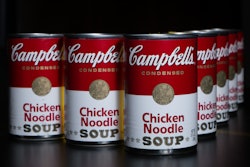For any business in the food or beverage industry, it’s important to choose the right type of flooring for all food processing areas. Having the right floor will impact not only your food processing area, but also the product itself.
Cleanliness is key, so concrete floors will need the right protective coating to ensure the area is kept hygienic and adheres to industry regulations. The floor of a food processing area will be exposed to various substances like grease, oil, hot liquids and food acids. Not only can these materials damage the floor if it’s uncoated, but they can also grow bacteria, making your food processing areas unsanitary. A proper coating designed for the food processing industry will act as a protective barrier and ensure a hygienic floor surface.
Floor coatings for food processing areas
Different kinds of specialty floor coating products have been developed for different purposes such as dry storage, cold rooms, slaughtering areas and more. The type of floor you should install for your food processing areas depends on the type of work being carried out in each area. Production areas need tough, hard-wearing floors that are chemical resistant. Food processing areas need floors that can be steam-cleaned and will be hygienic. Wet processing areas will need to be waterproof and they should also be anti-slip.
Epoxy
Epoxy resin coatings provide strong protection against acidic materials and abrasive cleaning chemicals. They’re easy to apply and fast-curing, so any downtime during installation will be minimized. Plus, epoxy coatings are often anti-slip, so they’re ideal for wet processing areas.
Urethane
Urethane coatings come in slurry form and have a long service life. They are quick to dry and easy to clean, so they are ideal for food processing areas. They also come with more decorative choices than other floor coatings, making them a great choice for any areas where you need a professional look.
Polyureas
Polyureas are most suitable for food processing areas where the floor must be flexible and resistant to impact. They can withstand high temperatures and they can stretch and bridge gaps.
What to consider when choosing a floor for your food processing area
- Traffic: Think about the volume and type of traffic the floor will be exposed to on an average day. For example, will the floor need to withstand heavy traffic from vehicles, pedestrians, heavy equipment or hard-wheeled trolleys?
- Liquids and chemicals: You should also consider the types of materials your floor may be exposed to. Will it need to be resistant to oils, acids, grease, hot water, steam or harsh chemicals? Choosing the right floor will ensure the floor can be cleaned easily and maintained thoroughly, and it will stand up to impacts, wash-downs and bacterial attacks.
- Structural considerations: Do you have ramps, walkways or wet and dry areas? Will the floor need to account for storerooms or cool rooms? Do you need to create falls in the floor to ensure run off to drains?
- Regulations: Always make sure the floor you choose complies with any industry regulations and standards. These regulations exist to ensure the health and safety of both your staff and consumers.
- Time to install: Can you afford the downtime required to install your floor? This might affect what type of floor you choose.
- Aesthetics: With the range of products available today, there are more options than ever before when it comes to the aesthetic quality of your floor. Color, texture and a clean professional look can be achieved with the right type of floor, so talk to a contractor about how you want the floor to look.
Kulin Group is one of Australia’s most respected specialist contractors in the flooring industry. To find out more, visit www.kulingroup.com






















